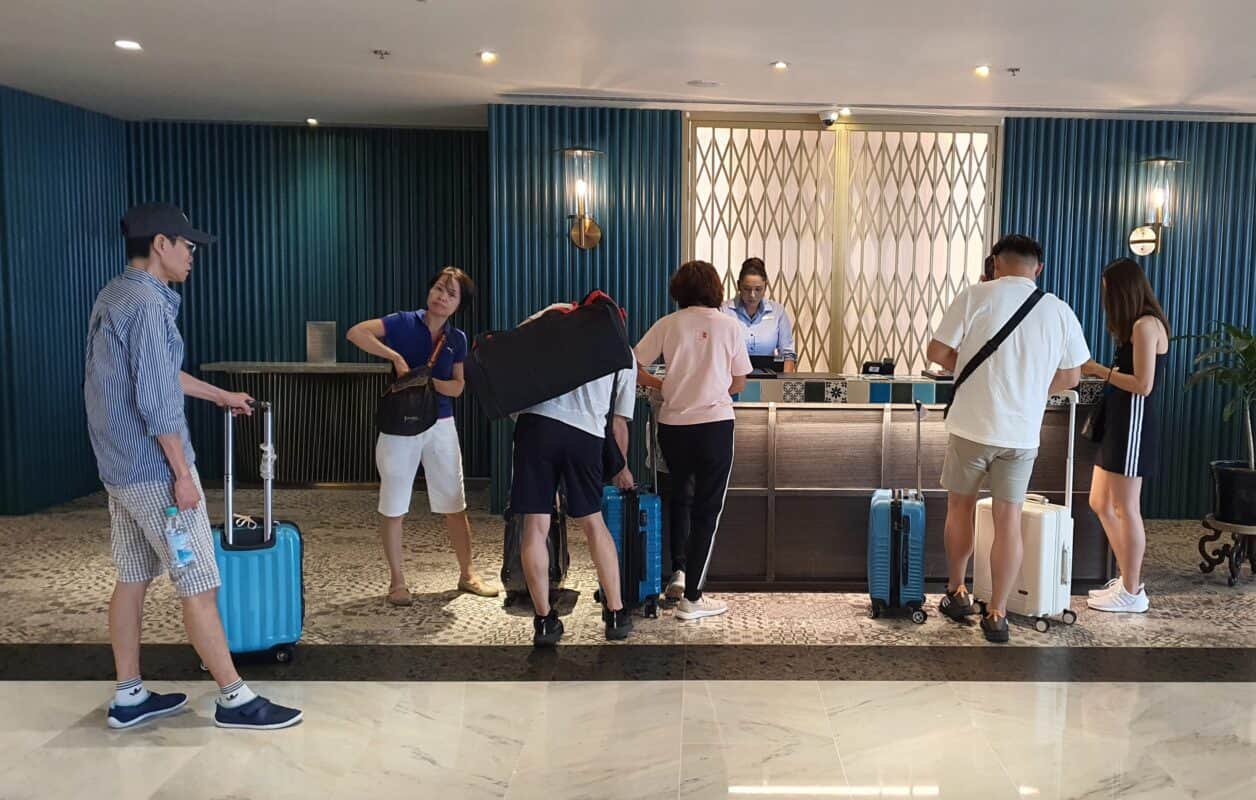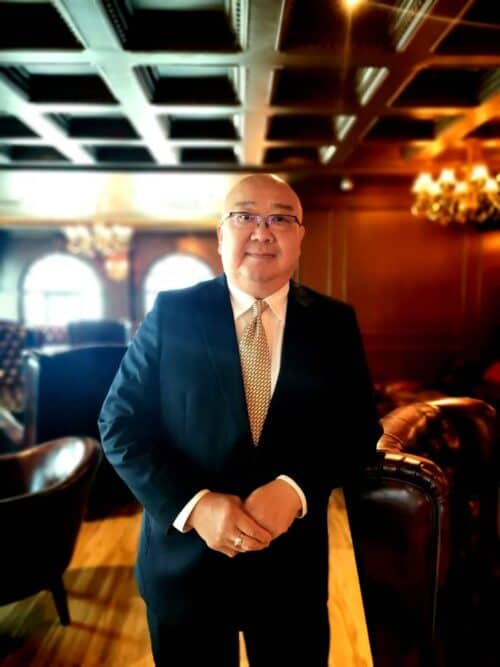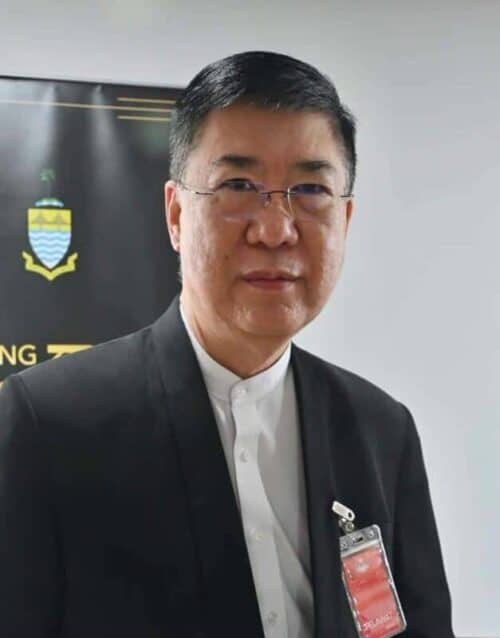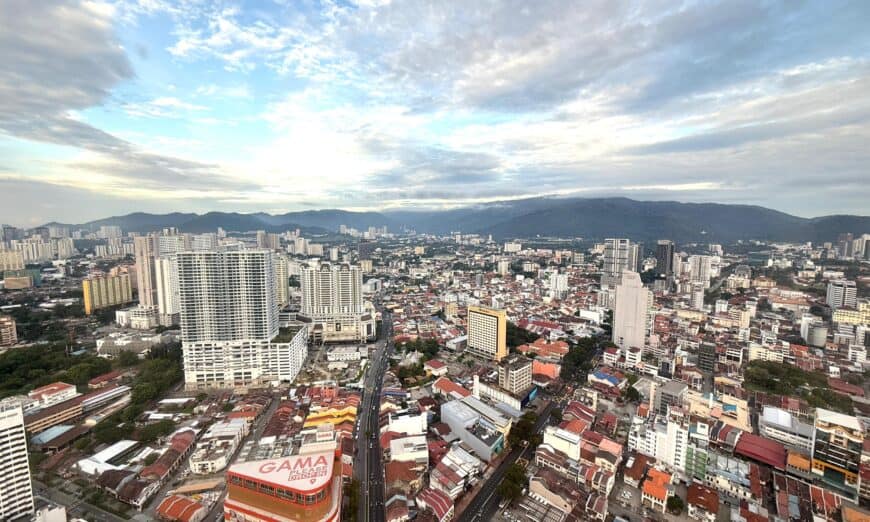PENANG has been rolling out various initiatives to revitalise its tourism sector, which remains a key economic driver for the state.
However, the hospitality industry is currently grappling with several challenges. According to a report published in Travel and Tour World, the sector is burdened by rising operational costs, a shortage of skilled workers, and growing concerns over an oversupply of accommodation options.

The report recommends a comprehensive marketing campaign to boost tourism and increase visitor spending. By leveraging both traditional and digital platforms, such a campaign could attract more tourists and provide much-needed support to local businesses coping with cost pressures.
The report also cites figures from the Malaysian Association of Hotels (MAH), noting that Penang now has 17,000 registered hotel rooms, an increase from 14,000 in 2022. Despite this growth, the average hotel occupancy rate has remained relatively steady at around 62%, a figure mirrored by short-term rental platforms such as Airbnb.
To address the issue of oversupply, it has been proposed that Penang adopt an Accommodation Development Rights (ADR) system. This system would empower local authorities to regulate the construction of new accommodation facilities based on key metrics, such as the average occupancy rate. The aim is to prevent market saturation and sustain profitability for industry players.
Buletin Mutiara spoke with two respected hoteliers, Datuk Khoo Boo Lim, Vice-President of the Malaysian Association of Hotels, and Datuk Tony Goh, Chairman of MAH Penang Chapter, for their insights and candid suggestions.

Datuk Khoo (Vice-President of the Malaysian Association of Hotels):
Right now, the industry is facing a serious shortage of quality, skilled labour, especially in the kitchen, F&B, front office, and housekeeping departments. Even senior management positions, including general managers, are becoming increasingly hard to fill because of the rapid growth in the number of hotel properties.
Unethical practices like staff poaching and job-hopping have allowed many unqualified individuals to take up positions they’re not ready for. As a result, service standards are declining because these recruits lack the necessary experience and knowledge.
Graduates from hospitality schools usually don’t stay long in the industry. They often work for a short while before heading overseas in search of better pay. As for back-of-house roles, many locals avoid them because they’re physically demanding, less glamorous, and perceived as ‘dirty’ jobs. That’s why we need foreign workers to fill this crucial gap.
With Penang registering thousands of new hotel rooms, I’m concerned about a potential oversupply in the market. This makes it even more important for federal and state tourism authorities to work hand-in-hand with industry players. We need to push for more creative and effective strategies to attract tourists, both leisure and business travellers.
We should be doing more to support business events so that Penang becomes a top choice for meetings, incentives, conferences, and exhibitions. Unfortunately, I’ve noticed a lack of coordination between the federal and state governments. I can see many times, they are not really in sync thus ending up with unfavourable results. If the aim is to attract high-spending tourists, then proper strategies need to be established and followed through with all parties committed to the same goal.
MAH has been vocal about the need to regulate short-term rentals (STR) and clamp down on illegal operators. However, enforcement faces many challenges thus reducing its effectiveness.
I also hope the government can look into offering incentives to help hotels manage rising operational costs, especially utilities. Right now, we often feel like we’re being treated more as tax collection agents than valued industry contributors. MAH used to play an active part in deciding how the funds are been utilised but now our role is made redundant.
The proposed Accommodation Development Rights (ADR) system is a good idea in theory. But to implement something like that effectively, we need proper, detailed data. Regrettably, we are very poor in statistics and data collection. Without solid information, ADR could end up creating more problems than solutions.
On a more positive note, I believe corporate travel in Penang will remain steady thanks to our strong manufacturing base. As for leisure tourism, China and India remain promising markets, especially with the recent visa-free travel policy. But we need to do the right things to attract these tourists and ensure their experience here is pleasant and memorable.
Ultimately, what we really need is a comprehensive Tourism Master Plan to lead and grow the industry. I just hope politics doesn’t get in the way again and derail the progress we so badly need.

Datuk Tony Goh (Chairman of MAH Penang Chapter):
Apart from the shortage of labour and skilled talent, we in the hotel industry are also facing rising operational costs, including labour, energy, and inflation. We hope that the government will allow interns who have completed their apprenticeship to work for at least two years. This would help create workforce stability and retain trained talent. At present, recruiting locals remains a significant challenge for many hotels.
With the mushrooming of other accommodation providers, such as Airbnb and unlicensed hotels, we’re seeing a clear oversupply of rooms. While the state government has done a commendable job in increasing tourist arrivals, the rate of room expansion has outpaced demand. For every additional 1,000 rooms, there needs to be an increase of at least 1,500 guests, based on an average of 1.5 guests per room.
On the marketing front, much more needs to be done to break away from traditional markets and explore new ones. This is why MAH has consistently advocated for the Hotel Fee collected to be used entirely for tourism promotion and marketing in Penang. Penang has always been at the forefront of tourism promotion among Malaysian states, but post-Covid, other states have become more aggressive in their efforts. The state government should also consider offering incentives to encourage investment in high-yield tourism products.
To better support the hotel industry, close collaboration between the state and federal governments is crucial in driving tourism to Penang.
Traditionally, the second half of the year tends to perform better than the first. However, it remains to be seen whether this is going to be better than 2024, given the ongoing uncertainties caused by global tariffs and conflicts.
Story by K.H. Ong
Pix by Darwina Mohd Daud

